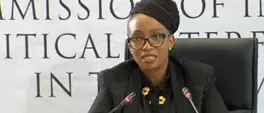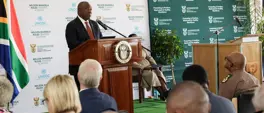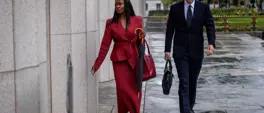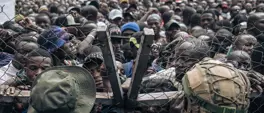UN warns scenes in Myanmar mirror 2017 atrocities
AFP
2 September 2025 | 7:51Rakhine State has been blockaded by Myanmar's military as it battles ethnic fighters in a many-sided civil war that has consumed the country since the junta toppled the democratic government in a 2021 coup.
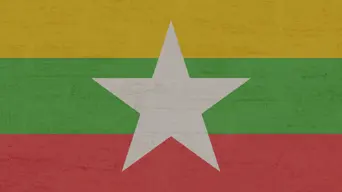
Picture: Pixabay.com
GENEVA - The humanitarian situation in Myanmar is worsening, the UN said Tuesday, decrying scenes reminiscent of the 2017 atrocities committed against the Rohingya minority that some countries deemed a genocide.
Rakhine State has been blockaded by Myanmar's military as it battles ethnic fighters in a many-sided civil war that has consumed the country since the junta toppled the democratic government in a 2021 coup.
UN rights chief Volker Turk warned that both the military and local ethnic fighters from the Arakan Army "have acted with near complete impunity enabling the recurrence of violations in an endless cycle of suffering for the civilian population".
"Videos and pictures show death, destruction and desperation, distressingly similar to images that we already saw during the 2017 atrocities committed by the military against the Rohingya" minority, he said in a statement.
"It pains me deeply to see the same happening again," he said, reiterating his call for the UN Security Council to refer the situation to the International Criminal Court.
The mostly Muslim Rohingya have been persecuted in Myanmar for decades, with hundreds of thousands fleeing during the 2017 military crackdown that is now the subject of a UN genocide court case.
'INDISCRIMINATE ATTACKS'
A fresh report from Turk's office on the rights situation in Myanmar, looking at the situation between April 2024 and May 2025, highlighted how hostilities in Rakhine had displaced hundreds of thousands more people in the state.
The UN estimates that some 150,000 of them have fled to Bangladesh since November 2023, joining the around a million Rohingya already languishing in refugee camps there.
"Civilians from both Rohingya and ethnic Rakhine communities continue to suffer the consequences of the hostilities," Turk said, pointing in particular to "widespread and systematic patterns of indiscriminate attacks by the military against civilians and protected objects".
Citing credible sources, the rights office found that nearly half of the 1,811 verified civilian deaths in the conflict during the 14-month period covered by the report were directly caused by military aerial attacks, including on schools.
"Forced displacement, forced recruitment, disappearances, arbitrary arrests, arson and property destruction," were also rampant in the state, Turk said, with civilians also facing "denial of humanitarian assistance, and repeated atrocities aimed at terrorising them".
The report also highlighted abuses carried out by the Arakan Army in northern Rakhine, including killings, forced recruitment and forced displacement.
On a positive note, it said there had been a "comparative decrease in violence affecting the Rohingya" since the start of this year.
But the ongoing military blockade that has throttled supplies to the territory is meanwhile deepening a severe hunger crisis.
Turk urged countries to back international efforts to hold those responsible for abuses to account and to enable humanitarian aid.
Get the whole picture 💡
Take a look at the topic timeline for all related articles.






